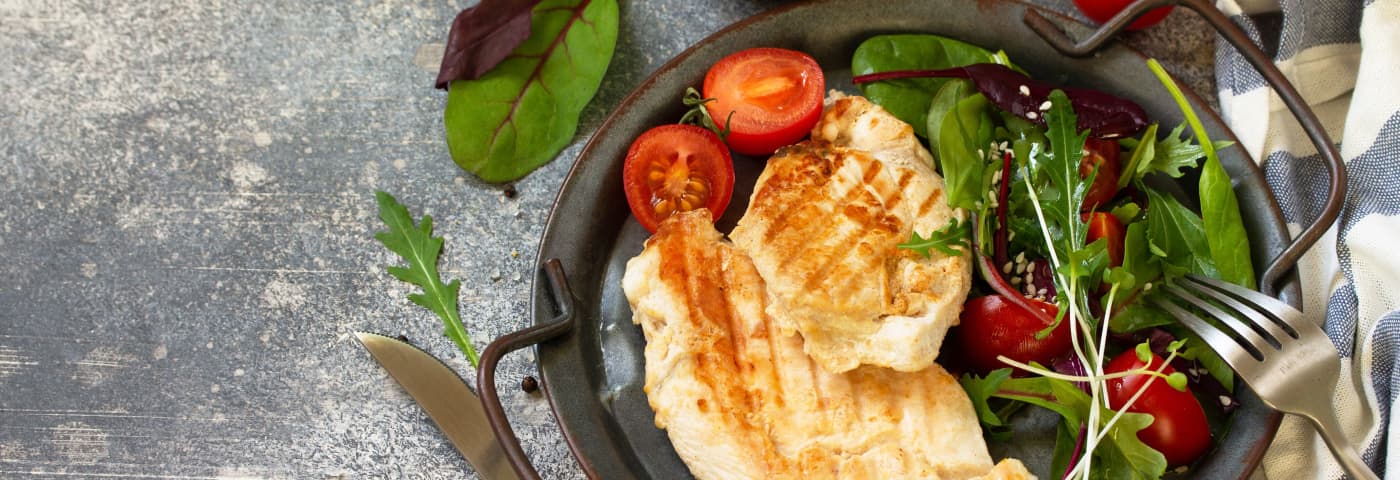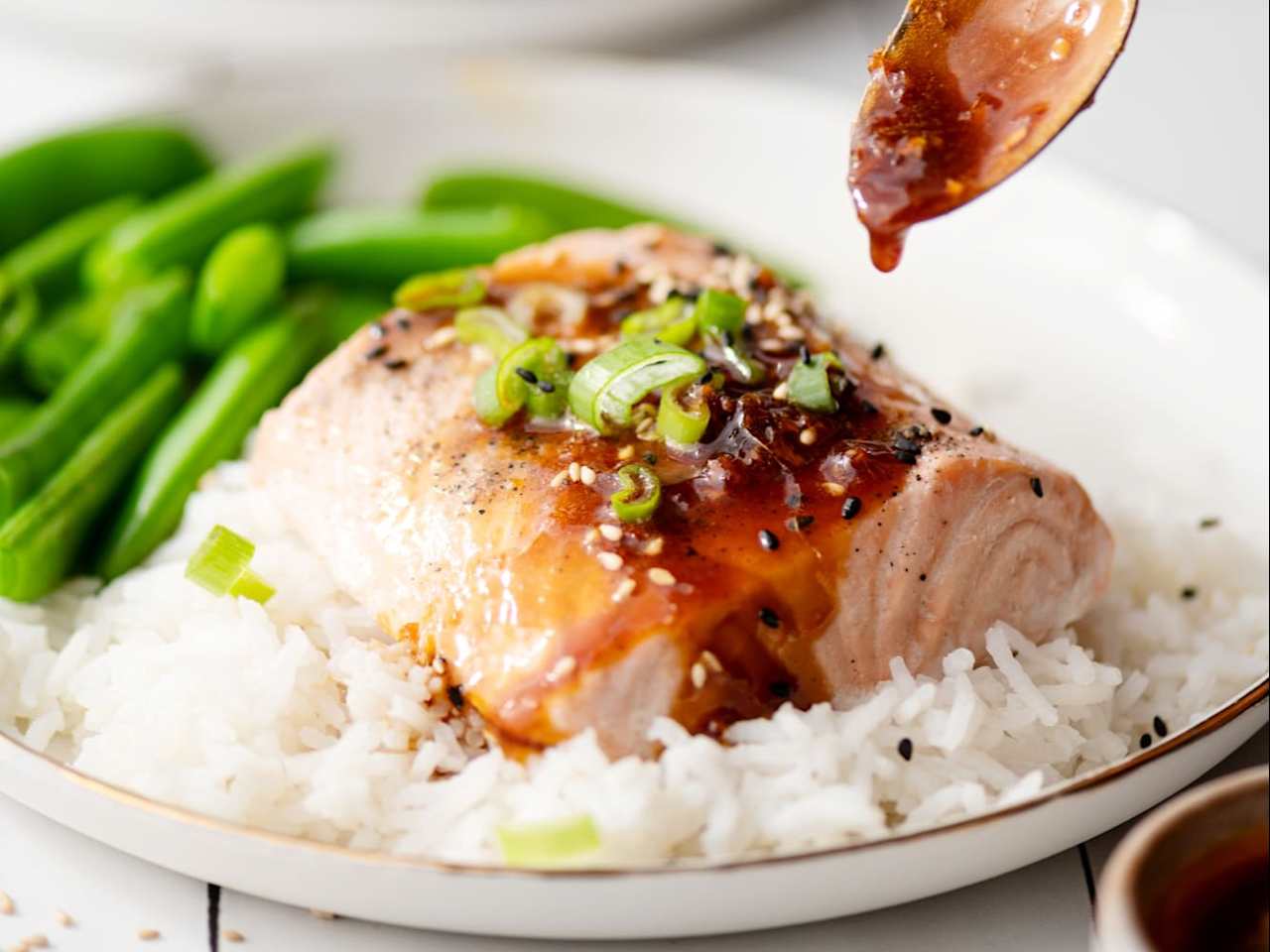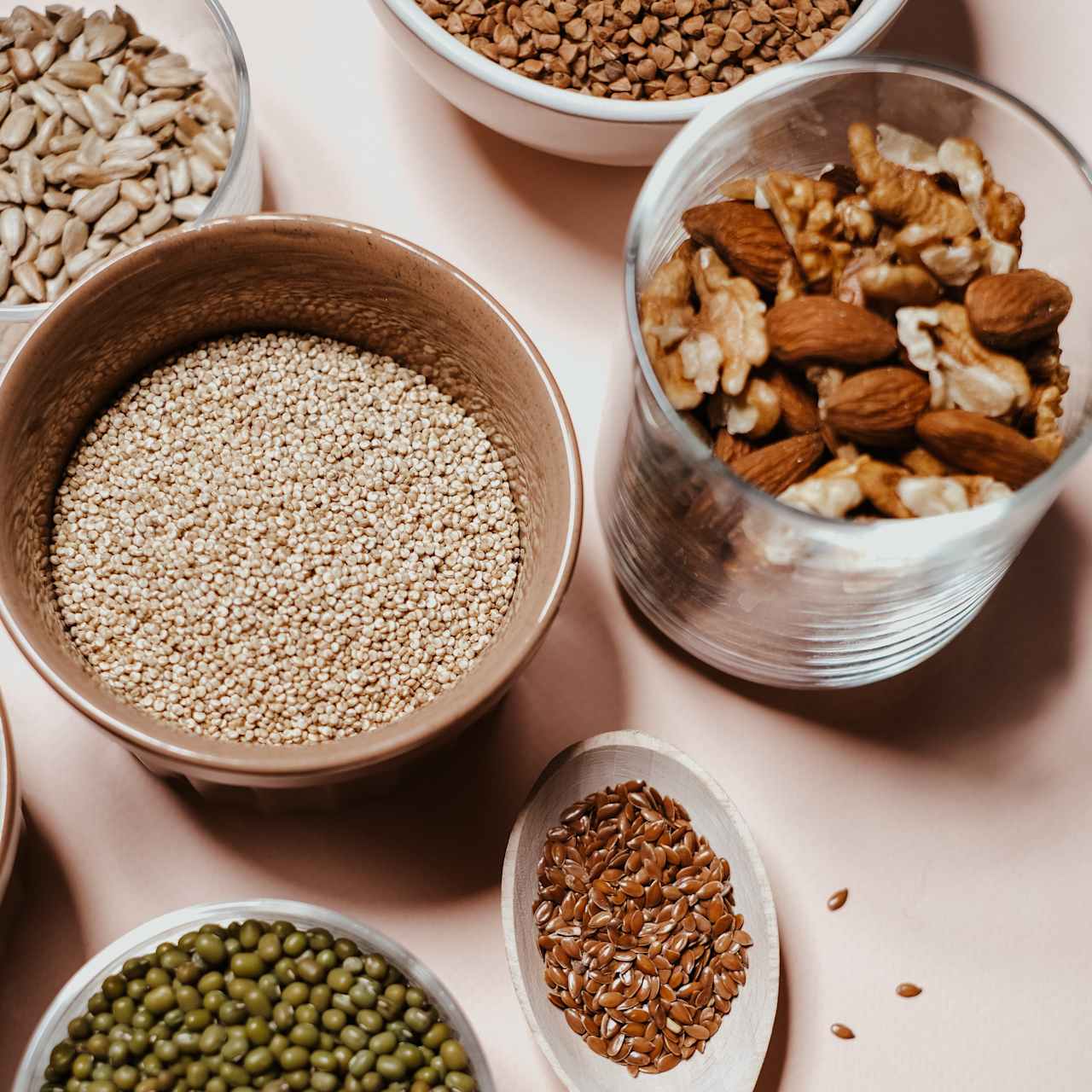
Getting enough protein is essential for overall good health. While a balanced diet is likely to provide you with all the protein you need, you might want to include a little more from time to time. Read on to learn more about this important macronutrient, its benefits, and how to incorporate more protein into your diet.

Protein is a macronutrient, a nutrient that provides us with energy. Made up of ‘building blocks’ called amino acids, protein is essential for bodily functions, including growth, brain development, and healthy bones. Factors such as age, weight, activity levels, and pregnancy can all impact how much protein your body requires. Protein is also the most filling macronutrient to keep you full and satisfied, supporting healthy body weight. The good news is that hitting your protein requirements can be easy if you include protein-rich foods in your diet, and we’ve got plenty of recipes to help with this!

Protein sources are divided into two groups: animal and plant. Protein can be found in a range of animal-derived foods, many of which are also important sources of vitamins and minerals. Common animal-based sources of protein include:
• Eggs
• Dairy, e.g. milk, cheese, yoghurt
• Fish, e.g. tuna, salmon, cod, mackerel
• Seafood, e.g. prawns, crab, mussels
• Meat, e.g. chicken breast, turkey breast, pork chop, beef steak, lamb chop

There are many different sources of plant-based proteins. Unlike animal proteins, these are often referred to as ‘incomplete’ proteins as they lack all the essential amino acids. For this reason, vegetarians and vegans can find it harder to meet the recommended protein requirements. However, enjoying a colourful, varied, plant-based diet should mean meeting these requirements is easy.
Here are some great plant-based sources of protein:
• Pulses, e.g. red lentils, chickpeas
• Beans, e.g. kidney beans, baked beans
• Nuts, e.g. almonds, walnuts, hazelnuts
• Grains, e.g. wheat flour, rice, brown bread
• Tofu

• Helps you feel fuller
Studies show a high-protein diet can increase the levels of certain appetite-reducing hormones. It also takes longer to digest than carbohydrates, keeping you feeling fuller for longer.
• Improves muscle and strength
Including lots of high-protein food in your diet can help to maintain muscle mass and promote muscle growth.
• Lowers blood pressure
Higher protein intake has been shown to lower high blood pressure, a known cause of a number of serious health issues.
• Boosts metabolism
When your body digests protein it burns 20-30% of the calories you consumed, a much higher amount compared to carbohydrates and fat.
